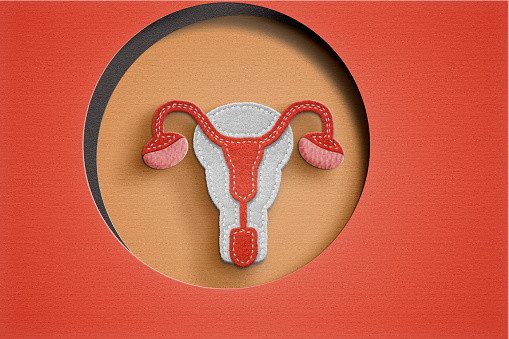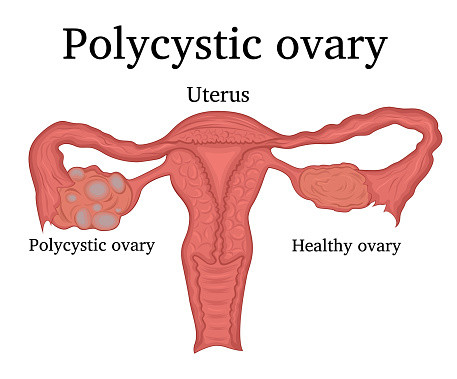
Polycystic ovary syndrome (PCOS) is a condition that affects women and can disrupt their cycle, cause infertility, and lead to excess amounts of facial and body hair.
PCOS is a prevalent hormonal condition that 10% of women of childbearing age experience. Hormonal imbalance and an increase in male hormones are features of the condition.
Numerous signs are brought on by this, such as irregular periods, infertility, an abundance of body or facial hair, and what is known as the "PCOS belly."
According to Dr. Fatima Daoud Yilmaz, a board-certified OB-GYN at the PCOS Center at Stony Brook Medicine, PCOS belly is a colloquial word that refers to the typical pattern of central fat accumulation around the abdomen in PCOS patients even though it is not a recognized medical term.
According to Daoud, PCOS belly happens when too much fat gathers and is deposited in the abdomen.
As a result, Daoud says, you'll probably observe that the rest of your body, including your limbs, will maintain a fairly constant size.
The accumulation of fat in the midsection will ultimately result in what's known as an "apple-shaped" body.
The main causes of PCOS belly are hormonal fluctuations and insulin resistance, says Dr. Shahin Ghadir, a board-certified OB-GYN and reproductive endocrinologist at the Southern California Reproductive Center, reports Insider.
"The reason that the abdominal area begins to gain more weight than other areas of the body is that the insulin resistance increases adipose tissue, which has a tendency to grow for most people in the abdominal area before growing in other areas," Ghadir says.

Insulin resistance and hyperandrogenism, in which the body produces too many male hormones, also result in a vicious cycle.
According to Daoud, insulin intolerance in the body worsens hyperandrogenism. According to her, hyperandrogenism encourages the body to store more fat, especially in the midsection, and as a result, as the body's insulin resistance worsens, the cycle keeps feeding itself.
All of this adds up to weight gain, particularly around the midsection. This pattern can make it very challenging to lose belly fat because it keeps building up there.
There is no singular quick fix or treatment for PCOS belly.
"PCOS belly is merely a symptom of PCOS, and you can't spot reduce fat," according to Daoud. Therefore, she says it's necessary to address the PCOS itself as a whole to manage the condition.
Losing general weight can be helpful if you are overweight. According to Ghadir, diet and exercise are two of the most effective and significant methods to manage and improve PCOS symptoms, including PCOS belly.
To treat PCOS as a whole and address other symptoms such as hair thinning, excess facial and body hair, and infrequent and unpredictable periods, your doctor may prescribe anti-androgen medications or hormonal birth control, says Daoud, says Daoud. However, these are not prescribed specifically for weight loss.
For better results, Daoud advises working with a team of experts who can manage your PCOS holistically, such as an OB-GYN, endocrinologist, and nutritionist. By addressing all aspects that play into your PCOS, you can achieve better symptom relief.
The easy secret to weight loss with PCOS, according to Daoud, is to be in a caloric deficit, which is when you expend more calories than you consume. You may see advertisements for particular PCOS exercises or diets.
You can find the diet that suits your unique situation and recommended daily calorie consumption by consulting a nutritionist. You will reduce belly fat along with your overall weight loss.
According to Ghadir, if diet and exercise alone aren't helping you drop weight and you're dealing with insulin resistance, your doctor might give you insulin sensitizer medications like metformin. Your body's ability to use insulin may be improved as a result.
Additionally, the doctor might suggest that you seek out an expert in obesity medicine who can write you a prescription for drugs that are specifically designed to help you lose weight and either reduce your ability to assimilate fat or your appetite.
© 2025 Latin Times. All rights reserved. Do not reproduce without permission.




